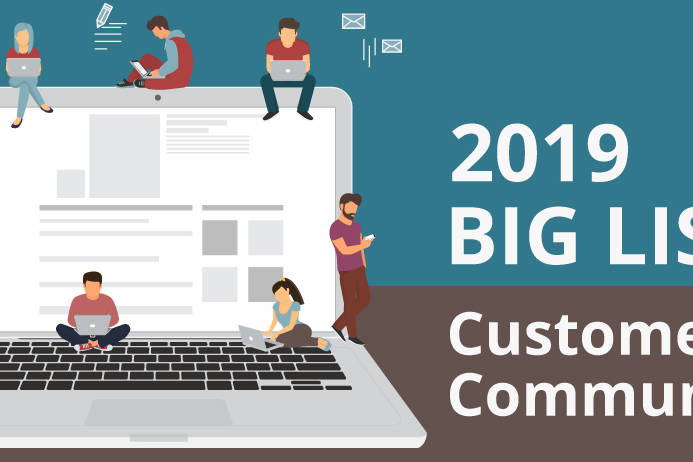I sometimes hear managers say to their reports “Just keep on doing what you’re doing.” As soon as I hear this, I begin to wonder: “Do they know where they’re going with what they’re doing?” When it comes to social business, “keep on doing” often means the firm’s online activities may be taking them far, far away from the goals they set out to reach.
A clearly-articulated strategy and well-defined goals are key elements of business success. To be worth the time and effort, every business activity should contribute to moving the organization in the right direction and achieving its strategic goals. In the words of business giant Michael Porter “Companies have to be very schizophrenic. On one hand, they have to maintain continuity of strategy. But they also have to be good at continuously improving.”
While many firms spend a lot of time and consulting dollars on strategic planning and goal setting to align core activities such as sales, marketing and operations across the enterprise. However, they seem to fail to include (or actively exclude) those social business activities which build and sustain the firm’s digital footprint. Some midsize to large organizations are “doing” social business activities which aren’t aligned with anything! For those firms, “doing” is all that counts, and a digital muddle is the result.
Defining the audience, matching social business methods and messaging to the audience, creating compelling content for engagement, measuring success — all of these are part of the doing. But if these efforts do not advance the firm’s strategic goals, then wasted time, effort and investment are the only real outcomes.
(Social) business strategy means starting with the end in mind. To bring a firm’s brand story to life means developing a fully integrated and integrative approach. Social business activities are an electronic version of your firms identify, thought leadership, relationship and value drivers. It means looking at social business as more than marketing campaigns or a portfolio of social media accounts. Rather, it needs to offer a digital representation and manifestation of the firm’s mission and vision. To get there, the organization has to stop thinking about “doing” social business as pushing out content, grubbing for followers or searching for sensational images.
Instead, go back to business basics. Ask the hard questions. Explore the ways social business activities can serve the firm’s mission and strategic goals while maintaining alignment with core operations. Before launching a social business initiative, be sure to know:
- Your organization’s direction and goals
- Key audiences with whom you need deeper relationships. For example, a profile of key buyers? Possible acquisition partners or collaboration opportunities? Financial analysts and journalists? Prospective mid-level or senior staff hires?
- What do you want to happen with those audiences? What changes in the relationship are you trying to create?
- What kinds of interactions might help move that audience towards this new relationship?
- What will it take to create those kinds of interactions?
That’s the strategic part.
Now take a cold, hard look at your current social business activities. Do they:
- Match your strategic direction? For example: how well do your online community’s outcomes support your audience’s needs? Do your social media efforts support conversations you really want to have with your audiences? Are they interactive and bi-directional? Do they deliver the audience experience your business strategy and goals intend for them?
- Deliver results which meet actual business goals, not just social metrics? Do you track and codify the business impact of your social business initiatives? Can you tell the story of how they helped progress the business?
- Build relationships with audience members who are important to your firm’s strategic direction and goals? And if so, how do you know?
- Engage audience members and your internal constituencies in collaboration which benefits both groups? Does everyone win because of your social programs?
- Deliver greater impact over time for each dollar expended? Not just cost cutting, but in real, measurable financial outcomes? How has social business progressed innovation or ideation at your firm? How did social business deliver sustainable impact to the top line?
If your social business activities meet the criteria above — Congratulations! You pursuing social business success based on delivering business results.
If not … consider these approaches:
- Know where you are going and why. Make sure you really understand your firm’s strategic direction and business goals. It’s all too easy to lose sight of goals, lose focus and end up doing social in circles with no results.
- Document it. Socialize your activities internally. Gather feedback. Ask for commitments from leaders across the organization to participate.
- Be efficient and effective. Which activities support the above criteria? Which do not? Keep the first and dump the rest to get the right scale.
- Less is more. When it comes to audience definition, it’s easy to be sucked into a numbers game. Forget that. Focus on identifying the most important audience segments, the most desirable prospects, the most active customers, the most influential industry partners and observers. Then tailor your social tools and messages to reach them where they are.
- Communicate real information and ideas. If your content is noise, no one cares. If it’s a digital monologue, is anyone listening? Clear, instructive, entertaining, enlightening, thought-provoking and compelling content — or any combination — will serve your audience member’s needs.
- Remember to be human. Your firm’s products and services are considered, purchased and used by people, not webbots. In the end, social business tools and techniques are just a virtual extension of our flesh-and-blood social selves. Build relationships, not campaigns.
Warning: Attempt to read property "base" on array in /home3/trusten9/public_html/leadernetworks/wp-content/plugins/wp-user-profile-avatar/shortcodes/wp-user-profile-avatar-shortcodes.php on line 665
Warning: Attempt to read property "base" on array in /home3/trusten9/public_html/leadernetworks/wp-content/plugins/wp-user-profile-avatar/shortcodes/wp-user-profile-avatar-shortcodes.php on line 665
Warning: Attempt to read property "base" on array in /home3/trusten9/public_html/leadernetworks/wp-content/plugins/wp-user-profile-avatar/shortcodes/wp-user-profile-avatar-shortcodes.php on line 665
Warning: Attempt to read property "base" on array in /home3/trusten9/public_html/leadernetworks/wp-content/plugins/wp-user-profile-avatar/shortcodes/wp-user-profile-avatar-shortcodes.php on line 665
Vanessa DiMauro
Internationally recognized independent thought leader on social business strategy and operations with a specialty in online community. I help organizations drive top line growth through innovative digital strategy design and thoughtful execution. I have successfully led 60+ strategic social business initiatives for the world's most influential organizations over my 20 years as a social business executive and serve on a number of boards. My award-winning track-record is fueled by passion, experience and research.
My work has been covered by leading publications such as the New York Times, the Wall Street Journal and CIO Magazine and was recently named a Social Marketing Master by Forbes. As a former Executive in Residence at Babson College, Olin School of Management, I am an engaging and informational educator and keynote speaker.
Related Posts
February 8, 2017
The Business Impact of Online Communities: New Study and Framework
Communities generate revenue, save money and advance competitive advantage.…
December 14, 2016
7 Digital Marketing Predictions for 2017
Predictions for digital transformation in 2017



